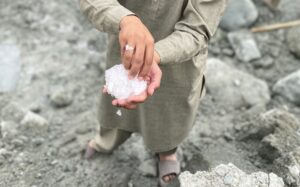Abstract/Description
This presentation examines competing ways that Canadian Rocky Mountain communities are understood, imagined, and experienced. I argue that these competing narratives make visible the often racist, classist, and colonial understandings of who belongs in these Canadian Rocky Mountain geographies. Drawing from a community-based research project based in the Bow Valley in Canada’s Rocky Mountains, I discuss three tensions that are often not visible in mainstream narratives about these communities. First, while Bow Valley communities, including Banff and Lake Louise, are widely known as world-class tourist destinations with high-end hotels, famous ski hills and expensive restaurants, the community members who staff these industries often cannot afford to feed and house themselves. Second, while popular and local narratives often celebrate mountain sports such as climbing, mountaineering, and skiing as the primary way that people interact with mountains, cultural communities who are at the forefront of addressing social inequities are not considered to be or celebrated as part of mountain culture. Third, while municipalities and conservation groups enact policies and programs that discourage, and in some cases make illegal, food provisioning practices, community members underline the need to break down narratives that pit people’s ability to provision food against the wellbeing of wildlife. In teasing out these competing understandings of how people relate to and build a sense of belonging within mountain geographies, this research aims to challenge popular ideas of what constitutes a “mountain person” in the Canadian Rocky Mountains. I argue that doing so is a necessary part of creating transformative change that addresses the intersection of social and ecological crises in these communities. This research contributes to the development of Canadian mountain studies, where reports such as the Canadian Mountain Assessment (McDowell et al., 2023) devote important attention to the cultural and economic contributions of mountain guides, for example, while overlooking the Temporary Foreign Workers who form the backbone of the service industry. This research also echoes calls for community-driven, transdisciplinary research (ie. Balzarini et al., 2022) to build a mountain studies field that reflects the diversity, complexity, and needs of the mountain communities in which we live and work.


